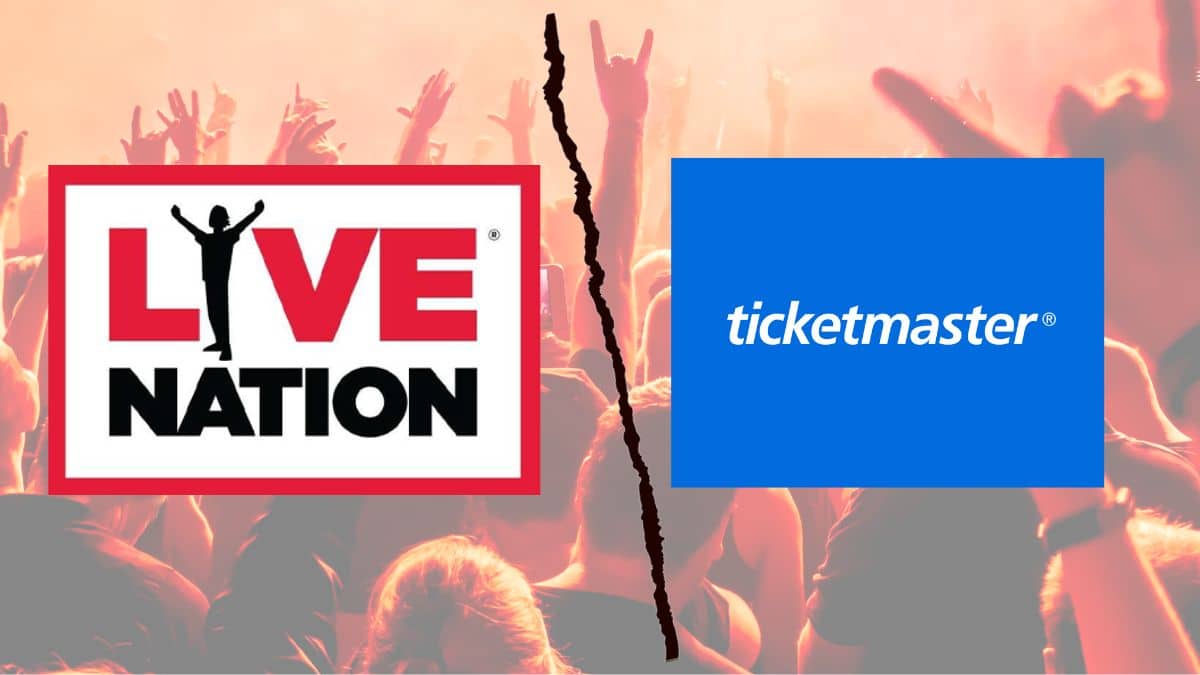The ticket-buying process has caused frustration among fans more than ever over the past year as Ticketmaster and its parent company Live Nation control the industry with “platinum” and “dynamic pricing,” anti-competitive practices, and stressful presale queues and waitlists. Now, fans are speaking out; as a part of Fan Fairness Coalition’s “The Monopoly” campaign, live eventgoers have sent out more than 72,000 letters to Congress, calling for the merger to be broken-up.
The Monopoly, a fictional band, was created by the non-profit as a play on Live Nation and Ticketmaster, describing themselves as the “most evil music group since 2010” — a tongue-in-cheek jab at the companies, since they merged that year. The FFC said the mission of The Monopoly is to remind fans that “the powerful are not incentivized to change on their own.”
In the six weeks since the campaign’s launch, FFC said that 72,473 letters were sent to Congress, representing all 50 states. Additionally, The Monopoly’s songs and content has reached more than 21 million total video views and garnered more than 28.6 million impressions across all digital platforms.
FFC Secretary and Democratic antitrust attorney Amanda Lewis called the Live Nation-Ticketmaster merger a “dominant platform that has made life harder for fans across America.”
“The company uses its power to suck the joy out of fandom, replacing it with frustration, reduced quality, and less choice,” Lewis said. “From outdated technology and site crashes to limited choices in how, when, or where fans buy and sell tickets, there is no question that fans are worse off today.”
Over the past year, fans have felt the burn of the ticket industry — no matter the genre. From Olivia Rodrigo and Bad Bunny to Blink-182 and Morgan Wallen, fans were met with hours-long queues to purchase tickets, error codes, waitlists, and above all — unattainable ticket prices. The exorbitant price hikes amid dynamic and platinum pricing left thousands of eventgoers empty-handed, unable to see their favorite artists perform live.
Most notably, Taylor Swift’s Eras Tour brought the issues to light in a now-proclaimed “Great War.” Following the presale ticketing disaster, the Department of Justice launched an investigation into Live Nation and Ticketmaster’s 2010 merger and Swifties even sued the entertainment giant, calling out the companies for “knowingly misleading millions of fans.”
While fans are scraping pennies together to afford tickets, Live Nation’s financials are booming now more than ever; the company reported a revenue boost during its third quarter, revealing it brought-in $16.9 billion to date. (And, notably, Live Nation CEO Michael Rapino’s compensation reached a staggering $139 million for 2022). However, it seems that people are finally catching-up to the fact that the pair has freely acted as venue owners, operators, ticket sellers, and promoters simultaneously since its merger — eliminating further competition.
“We’re encouraged by recent congressional action, including a House Judiciary Antitrust Subcommittee hearing on the Department of Justice’s Antitrust Division and the subpoena issued to Ticketmaster by the Senate’s Permanent Subcommittee on Investigations,” Lewis said. “We know how important it is for Congress to hear from consumers to drive real change, and we’re excited by the Fan Fairness Coalition’s early work to restore power to the fans.”





